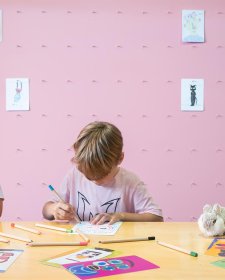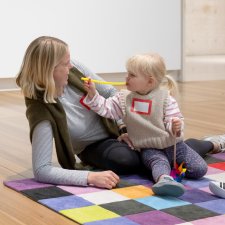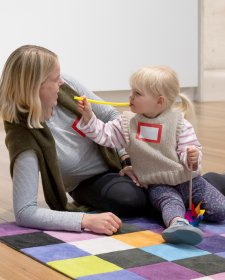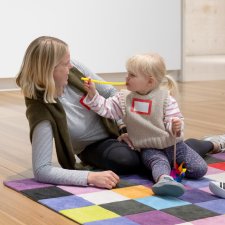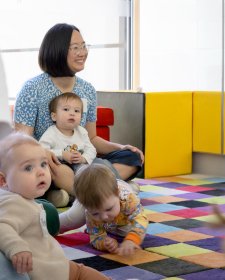- My brothers were very fine athletes. I was thought to be a little bit strange in the family because I was a bookworm. And they always knew what my elder brothers did, but they would say, "Well, what's he do?" And Dad said, "Look, he's a bookworm, but he'll come good." Like some big impediment that I had. Not really, I mean he encouraged me by buying me encyclopaedias and all sorts of things.
I had the two-fold things. I had the sport, and I had the fanatical desire for academic excellence, which, really, has been my life. It's been a great journey, the rugby journey. But it always was feeding into something else. It wasn't just it, you know, it actually taught you how to discipline yourself, and how to concentrate, and I think that stands you in good stead in life if you use it well.
A lot of people said I should give up the game, that I couldn't do both. And I was lucky enough to have a dean, Eric Saint, who took me aside and said, "Look, I think you can do both," he said, "I'll back you. But if you fail an exam, I can't back you." So he allowed me to play, and that was the deal: that I had to keep passing exams, and pass them well, and he'd keep making arrangements for me to continue to play my game. That was the turning point in my life, which was good. I realised that I wanted to do both, and to do that I needed to plan, and plan well ahead, plan ahead academically, plan ahead for the rugby tours. And I've used that, that you actually have to try and do a couple of things and do them well. In life, you have opportunities, and you have to risk things, even if you're going to lose. It's better to actually give it a go and fail, than not to have explored that opportunity at all.
Ophtalmology had started to appeal to me 'cause I had an interest in visual arts, I had an interest in vision. But I always had the drive to do some remote work, or third-world work. And I could see immediately that ophtalmology would allow me to do that. And I thought, it's a nice thing to make it to your own state. And particularly in an area where you were as a child. Looking after my teacher, like Mrs. Keeble from Cooktown, one of the best teachers I've ever had. So that's a lovely thing, to actually belong to something, to belong to to a part of your country, and to make a contribution somewhere along the line. And I just think it's just such an extraordinary gift to be born into this area of the world. It's a fortunate thing, to be allowed to make some contribution in some way to your own state.
Joachim and myself have talked about this. He was surprised that I knew a bit of art history, and we started talking about all these things. So we went to and fro, and we tried one photograph, then I thought, we need to go back and do some more, Joachim, because when I think of it, my life has been more ophtalmology, it's been more eye surgery. We came in here to the operating theatre downstairs on a Saturday. And we set up a whole theatre structure. And then it was his idea to go into this change-room, and that's what eventually has come out to be. I hadn't realised the connection, really. That when you go to theatre, you're going into a change-room, and you go and change your uniform, and you become something different to what you were. I realised that in sport now, that that's what happens. You come to the field, and you're dressed in a blazer. You take that blazer off. You put on the uniform. You run onto the field, and you become something different.
When you operate, you're starting to deal with human tissue, and it's variable, but you have to have this belief that you can go there and change things for the better for that person. It's an interesting thing. It's no wonder that you try to get dressed up into some different type of gear, and become something different in the operating theatre, something better, I hope. And you need to go on to some type of zen performance, where everything's excluded from your thought. And you're looking at this moment and this time. You know, there's a very small space that you're given. And if you're in that space, you want to change it for the better. It's a concentration into small space, and to try and do that small space well, without getting worried about the enormity of how big life is, and how ramifications will be, that it's there, and it's now.

